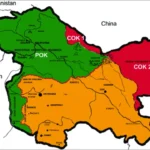As geopolitical tensions intensify in Eastern Europe, NATO announces increased military exercises near the Russian border in response to growing threats and aggressive rhetoric from Moscow.
Tensions Escalate in Eastern Europe as NATO Increases Military Presence Near Russian Border
Amid mounting geopolitical pressure and heightened rhetoric from Moscow, NATO has announced a significant increase in military drills along the alliance’s eastern flank, particularly near the Russian border. The move comes as tensions in Eastern Europe continue to escalate, sparking concerns over potential regional instability.
Expanded NATO Exercises Signal Defensive Posture
In a press briefing held earlier this week, NATO Secretary General Jens Stoltenberg confirmed that the alliance will conduct a series of expanded joint military exercises across several Eastern European countries, including Poland, Lithuania, Latvia, and Estonia. The exercises are designed to improve preparedness, strengthen coordination, and boost deterrence efforts among NATO member states.
“This sends a strong signal of solidarity and readiness. NATO remains committed to protecting every inch of allied territory,” Stoltenberg said.
The exercises, involving thousands of troops, air and naval units, and advanced combat equipment, are expected to run through the summer, with participation from both U.S. and European forces.
Moscow’s Response and Rising Rhetoric
The Kremlin has responded with strong criticism, labeling NATO’s moves as “provocative” and warning of “unpredictable consequences.” Russian officials accuse the alliance of exacerbating tensions and claim that the West is deliberately fueling instability along its borders.
This comes amid a recent uptick in military activity by Russia, including large-scale drills near the Ukrainian border and the deployment of advanced missile systems in strategic regions.
Eastern European Nations Welcome Support
Countries in Eastern Europe, particularly those with direct borders with Russia, have expressed strong support for NATO’s increased presence. Leaders in the Baltics and Poland have praised the alliance’s efforts to bolster regional security amid what they describe as a growing threat from the East.
Poland’s Defense Minister, Tomasz Nowak, stated:
“We are facing one of the most complex security environments in recent history. NATO’s commitment is a crucial reassurance for our citizens.”
Global Implications and Strategic Concerns
Analysts warn that the ongoing military posturing could further strain East-West relations and potentially trigger an unintended escalation. The situation is being closely monitored by international bodies including the United Nations and the European Union, both of which have called for diplomatic dialogue and de-escalation.
Experts also note that this development may have broader implications for global security, energy markets, and cyber defense strategies, particularly if diplomatic channels continue to falter.
Conclusion
As Eastern Europe becomes an increasingly volatile flashpoint, NATO’s decision to ramp up military exercises underscores the alliance’s commitment to deterrence and collective defense. While intended as a safeguard, the move has further intensified an already tense relationship with Moscow, raising the stakes in one of the most critical geopolitical standoffs of the decade.




